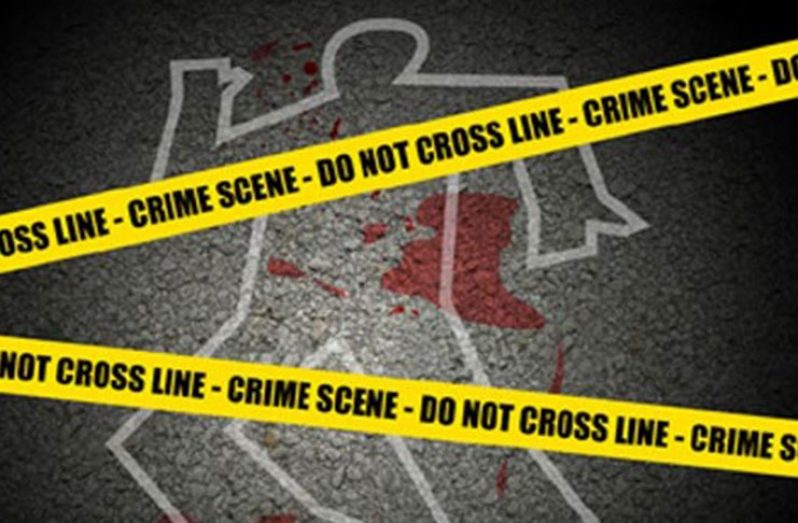By Ivan Cairo
PARAMARIBO, Suriname, CMC – Thirty-five years after 15 prominent opponents of the then military government in Suriname were rounded up, shot and killed at an army fort in the capital, the “December Murders” still provokes emotional outburst in the Dutch-speaking Caribbean Community (CARICOM) country.
On Friday, during a sober ceremony, wreaths and flowers were laid at Bastion Veere in Fort Zeelandia where on December 8, 1982, the 15 political opponents of the then military government of President Desi Bouterse were executed.
Among those attending the ceremony were former president, Ronald Venetiaan, relatives, friends, trade union leaders and representatives of the Dutch and American embassies. A memorial service will be held at the Cathedral Basilica later on Friday evening.
The 15 people, including journalists, trade union leaders, military officers, businessmen, lawyers and university lecturers, were arrested at their homes, tortured in Fort Zeelandia and then shot dead.
Bouterse and 24 other suspects have gone on trial for the murders, and relatives believe that closure is on the horizon. The military prosecutor, Roy Elgin has sought a 20-year jail term for Bouterse, who has insisted he is innocent.
Sunil Oemrawsingh, a relative of one of those killed, said given that the trial is in its final stages, there could be at least some closure to this dark page in Suriname’s history.
“This not easy,” said an emotional Oemrawsingh, adding that the victims were fighting for democracy, justice and truth when they were killed.
Reverend Marjorie Slagtand, who spoke at the ceremony, gave words of encouragement to the attendants, while the president of the Organisation for Justice and Peace (OGV), Betty Goede, said, “Everybody is welcome to the church.”
Her remarks were in response to an earlier statement from Dew Baboeram, whose brother was one of the persons that were killed. He was quoted in the media as saying that neither he nor the members of the ‘Committee of Victims and Relatives of Political Violence’ had been invited as yet to attend the annual memorial service.
While the OGV has, for the past 35 years, been calling for the perpetrators to be brought to justice, Baboeram’s organisation is calling for ‘truth and reconciliation’.
During a recent interview with the newspaper, ‘De Ware Tijd’, Baboeram said that Bouterse did not kill anyone on December 8, 1982, nor did he give the order to do so.
He said the 20-year jail term which is being sought is an injustice against Bouterse, and claims that he had credible information that his own brother, John Baboeram, a lawyer who was among the victims, was conspiring with others to overthrow the then government in 1982.
“It is painful to hear, but my brother was conspiring to overthrow the government,” Baboeram said.
Sergeant-Major Bouterse came to power on February 25, 1980, with 15 low-ranking officers of the Surinamese National Army in a coup that ousted the Henck Arron administration.
The coup was the result of a conflict that observers said stemmed from a move by the soldiers to establish a trade union.
Despite initial support for the coup, opposition soon mounted as Surinamese became disgruntled with the policies of the military government. There were several attempts at overthrowing Bouterse’s government.
In 1982, Suriname’s then most powerful trade union, De Moederbond, organised several general strikes, and when the then Prime Minister of Grenada, Maurice Bishop made an official visit to the Dutch-speaking country, striking workers of the national power company interrupted the power supply, leaving a mass meeting organised by Bouterse in the dark.
While Bouterse’s rally suffered from a power outage, there was no such problem for De Moederbond that organised a rally on the other side of the capital, attracting a very large crowd.
Bouterse had vowed then to send the bill for the rally to De Moederbond’s chairman, Cyrill Daal, and he could keep the change. A few weeks later, Daal was shot dead with 14 other men.
Since Bouterse came to power through democratic elections in 2010, he has made several attempts to stop the criminal case that began on November 30, 2007.
In April 2012, the Amnesty Law was amended so that the suspects of the December Murders, as it is known here, would no longer be prosecuted. This law was set aside by the courts, and in June 2016, Bouterse invoked Article 148 of the Constitution, which gives the government the authority to instruct the Prosecutor General to stop a criminal trial if that is in the interest of national security.
The attempt was also squashed by the Court of Justice, and on 28 June this year, the Prosecutor General sought a prison sentence of 20 years against Bouterse.
A 20-year sentence was also demanded against six other suspects.
Ruben Rozendaal, who, according to the prosecutor, should have been given a 10-year sentence, committed suicide last week Friday. Of the 16 military officials who participated in the February 1980 coup, only six are still alive.





.jpg)








